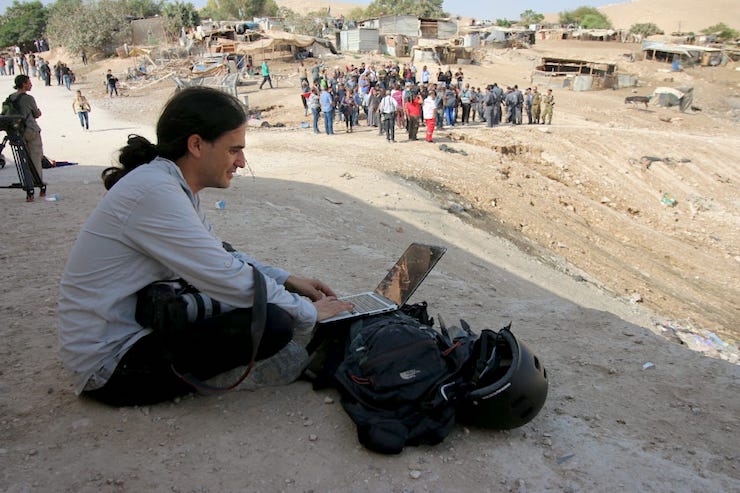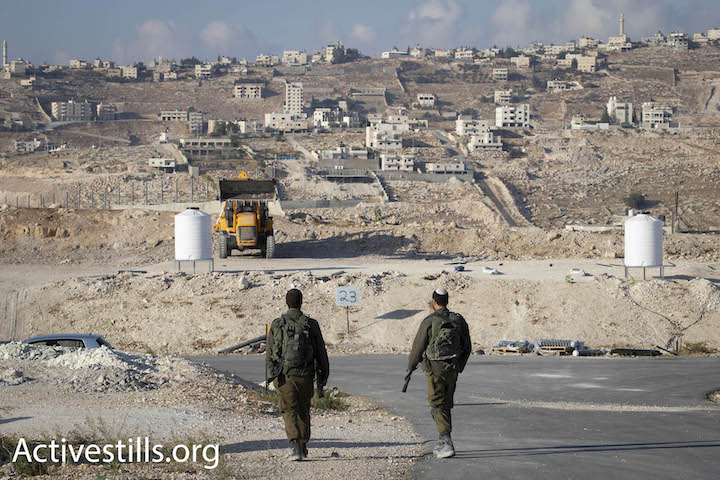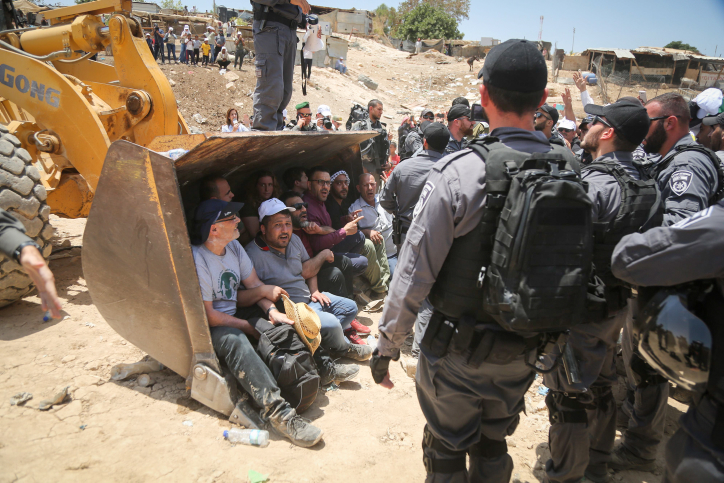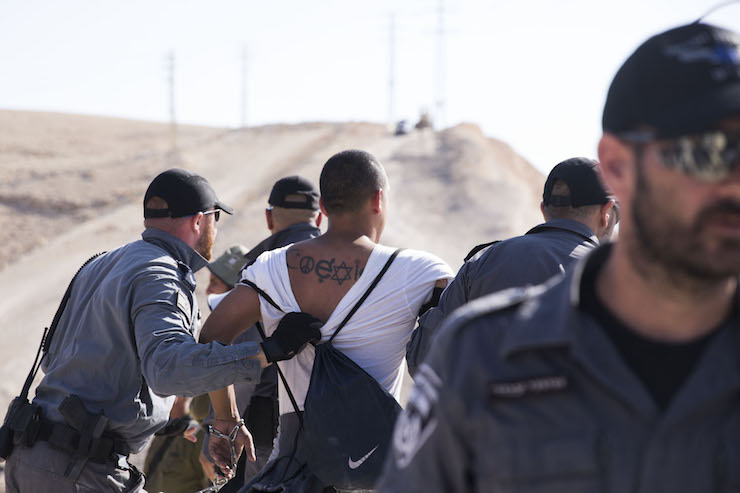Over the last four months I have spent most of my time in Khan al-Ahmar, watching young Palestinians resist, day after day, the Israeli authorities’ attempts to demolish the village. On Saturday night, their struggle finally bore fruit.

Ever since Israel’s High Court of Justice gave its stamp of approval for the Israeli army to demolish Khan al-Ahmar nearly two months ago, I have slept in the village almost every single night. In that time, a number of people (including at times my editors) have asked me, and sometimes I even asked myself, what is the point?
The first answer is entirely technical: my fear that Israeli authorities might completely block off access during the demolition. If that were to happen, any journalists who weren’t already inside the village when the bulldozers arrived would not be able to document the eviction and destruction.
While Palestinian journalists maintained a constant presence at Khan al-Ahmar these past few months, aside from a few photographers, I was the only Israeli journalist consistently reporting from the village over the past four months. My presence in the village taught me that despite all of its previous losses, the popular struggle in the occupied territories is still alive.
Throughout the summer, and especially since the final court ruling in September, hundreds of Palestinian activists remained in the village day and night. The Palestinian Authority Committee Against the Wall and Settlements provided the infrastructure for their stay — from bus rides to blankets to meals to electricity for charging phones.
A month ago, not a single person in Israel, the West Bank, or even around the world, would have believed that the struggle of a few hundred activists could succeed in delaying — if not defeating completely — Netanyahu’s decision to demolish the village.
Although the vast majority of activists and journalists thought the demolition was only a matter of time, on Saturday night, when Israeli Prime Minister Netanyahu announced that he was shelving the demolition until further notice, everything looked different. For a moment, it was possible to see how a defiant, popular, nonviolent struggle could accomplish the impossible.
I have heard several Israeli journalists argue over these past few months that without the backing of the PA and the activists, the Bedouin residents of Khan al-Ahmar would have long ago signed a deal and left voluntarily for the small plot of land near a garbage dump in East Jerusalem that Israel was offering them.

It was always a bogus claim.
For years, without the support of the PA, Khan al-Ahmar’s residents refused to budge and took their struggle to the courts. The activists were there to support the residents as they faced immense, constantly growing pressure by Israeli authorities to change their mind and leave their homes. This included routine police harassment, blocking the entrances to the village, and raids.
The presence in the field of activists and select media was an integral part of an effective struggle that led to constant coverage by global media outlets. International pressure on Israel, from foreign diplomats and even the International Criminal Court, would not have occurred without the commitment of activists, tours of the village, and meetings with visiting diplomats.
And while it is difficult to imagine a minister in the Israeli government sleeping in a tent in a Bedouin village for a month and a half, that is exactly what Walid Assaf, minister of the PA’s Authority Committee Against the Wall and Settlements, has been doing. He and staffers in his ministry, some of them former activists in the popular struggle committees, faced off directly with Israeli police, and were often beaten or pepper sprayed.

The presence of left-wing Israeli activists in the village, however, was sorely lacking. Despite the sense of urgency on activist social media, only a small number of activists from Ta’ayush and All That’s Left were there consistently over the last few months. Politicians and leaders of left-wing movements did not seem to make too much of an effort to mobilize Israelis to come and stand in solidarity with the residents of Khan al-Ahmar, although groups such as B’Tselem and others played a significant role on the diplomatic level.
And yet, despite all the shortcomings, the meeting of Israelis and Palestinians as part of a struggle carries even greater significance than just this specific struggle. Meeting young people from across the West Bank, many of whom do not take part in protests in which Israelis are present, was a reminder of the stark differences between the realities that Palestinians and Israelis face.
I met young Palestinians from Askar refugee camp near Nablus, from Jenin, and Hebron, many of whom read Hebrew news outlets and are interested in what is happening inside Israel. They always wanted to know what I think, and more importantly, what the Israeli public thinks about them, and whether there is a chance for a solution to the conflict — the kinds of questions the average Israeli no longer thinks about.

These kinds of meetings, in the context of a joint struggle, can allow us to imagine, even if for a moment, the possibility of a different reality in this land.
Netanyahu is now talking about taking a few more weeks to reach some kind of agreement with the residents of Khan al-Ahmar to relocate voluntarily to a location that is agreeable to them. That kind of resolution, regardless of how it is presented to the Israeli public, will prove something that seemed almost impossible just a few days ago: Netanyahu lost, and the struggle of Khan al-Ahmar’s residents and activists won.

